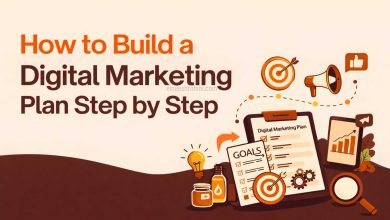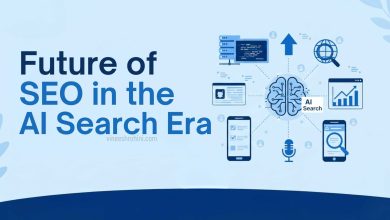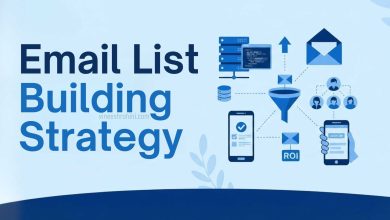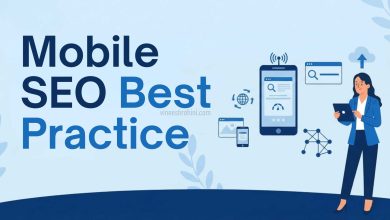How Facebook Marketing Work ? Complete Guide to Facebook Marketing – Download Free e-Book
Fakebook marketing refers to the use of a fake Facebook account or page to promote a product, service, or brand. It is considered unethical and may be against Facebook’s terms of service. It is important to note that creating a fake account or page on any social media platform is a violation of the platform’s terms of service and can result in account suspension or termination. Additionally, using fake accounts or pages to promote a product, service, or brand can be damaging to the reputation of the business or individual associated with it.
There are no real benefits to fakebook marketing, as it is considered an unethical and potentially illegal practice. Creating fake accounts or pages on Facebook, or any other social media platform, is a violation of the platform’s terms of service, and can result in account suspension or termination. Additionally, using fake accounts or pages to promote a product, service, or brand can be damaging to the reputation of the business or individual associated with it. In contrast, legitimate social media marketing can help businesses to reach a larger audience, increase brand awareness, and generate leads and sales.
This can be done through a variety of methods, such as creating a Facebook page for a business, running ads on the platform, and leveraging the power of Facebook groups.
Creating a Facebook page for a business allows the business to share information about their products or services, post updates and engage with customers. Facebook ads allow businesses to reach a targeted audience through the use of demographics, interests, and behaviors. Additionally, Facebook groups can also be a powerful tool for businesses, as they allow businesses to engage with customers in a more informal setting and build a community around their brand.
Facebook marketing can be a cost-effective way to reach a large audience, increase brand awareness, and generate leads and sales. It can also be used to drive website traffic, increase online sales, and boost brand loyalty. It is important to note that to be effective, Facebook marketing requires a well thought out strategy, targeting, regular posting and engagement with audience.
Pros & Cons of Facebook for marketing:
Pros
- Large audience: Facebook has over 2.8 billion monthly active users, making it one of the largest social media platforms in the world. This provides businesses with a huge potential audience to reach out to.
- Targeted advertising: Facebook’s advertising platform allows businesses to target specific demographics, interests, and behaviors, making it easier to reach the right people.
- Cost-effective: Compared to traditional forms of advertising, Facebook advertising can be relatively inexpensive and can be scaled to fit any budget.
- Measurable results: Facebook’s advertising platform provides detailed analytics, which allows businesses to track the success of their campaigns and make data-driven decisions.
- Increased brand awareness: A Facebook page allows a business to establish a presence on the platform and engage with their customers, which can help to increase brand awareness and loyalty.
- Building community: Facebook groups can be a powerful tool for businesses, as they allow businesses to engage with customers in a more informal setting and build a community around their brand.
- Integration with other platforms: Facebook’s platform allows businesses to integrate with other platforms, such as Instagram, WhatsApp and Oculus VR, to reach a larger audience and have a more comprehensive approach.
- Retargeting: Facebook allows retargeting of ads, which means that businesses can show ads to people who have already shown interest on their website or pages, increasing the chances of conversions.
Cons
- Constant Algorithm Changes: Facebook’s algorithm is constantly changing, which can make it difficult for businesses to reach their target audience.
- Decrease Organic Reach: Due to the number of pages and users on Facebook, organic reach for pages has decreased making it harder for a business to reach their audience without investing in ads.
- Privacy concerns: Facebook has been involved in several privacy scandals, which has led to some users being hesitant to share personal information on the platform.
- Ad fatigue: Users may be exposed to a large number of ads, which can lead to “ad fatigue” and reduce the effectiveness of ads.
- Dependence on paid advertising: With the decrease in organic reach, businesses may have to rely more heavily on paid advertising to reach their target audience.
- Misuse of personal data: Some users may feel uncomfortable with the amount of personal data that Facebook collects, and businesses must be careful to use it responsibly.
- Negative comments and reviews: Facebook is a public platform, and businesses must be prepared to handle negative comments and reviews from customers.
The Working
- Creating a Facebook page: A Facebook page is a public profile that businesses can create on the platform. It allows them to share information about their products or services, post updates, and engage with customers. A business page can be used to increase brand awareness and generate leads.
- Running Facebook ads: Facebook’s advertising platform allows businesses to create ads that are targeted at specific demographics, interests, and behaviors. Ads can be placed in a variety of locations on the platform, such as in the news feed, on Instagram, or in the right column of the desktop site.
- Facebook groups: Facebook groups allow businesses to create communities around their brand. Businesses can use these groups to engage with customers in a more informal setting and to provide helpful information, support, and resources.
- Tracking and Analyzing: Facebook provides detailed analytics, which allows businesses to track the success of their campaigns and make data-driven decisions. You can track how many people saw your ads, how many clicked, the demographics of the people who saw it and much more.
- Optimizing and refining: Based on the data collected, businesses can optimize and refine their campaigns to better reach their target audience and achieve their marketing goals.
- Retargeting: Facebook allows retargeting of ads, which means that businesses can show ads to people who have already shown interest on their website or pages, increasing the chances of conversions.
Now you can download a “Collection of Facebook Marketing Guide eBooks”



